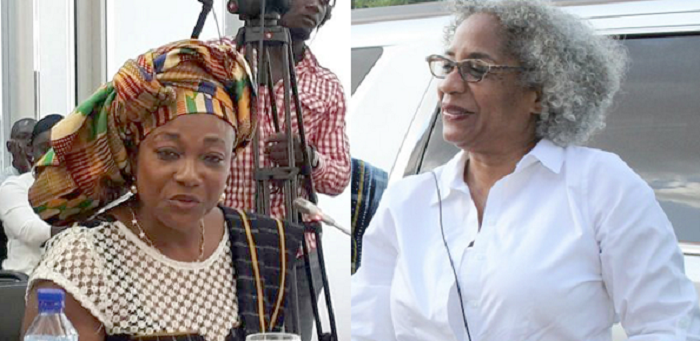
Women in agribusiness can drive Ghana beyond aid
The USAID Ghana Mission Director, Ms Sharon Cromer, has said that empowering women in agriculture can serve as a catalyst to help position the country as a nation beyond aid faster and in a sustainable manner.
She said women made up 50 per cent of the population and served as an underutilised resource, such that progress could not be made when over half of the country faced a range of economic and social challenges, including lack of access to land, markets, agricultural technologies and inputs.
Consequently, she indicated that empowering women to participate in the local economy could pave the way to Ghana’s self-reliance and economic growth.
“Fostering broad-based inclusive economic growth means unlocking everyone’s potential, including women and youth, to fully utilise their talents. This involves investing in gender-smart solutions,” she said at the Women in Agribusiness Development Summit organised by the USAID –Financing Agriculture Project (USAID-FinGAP) in Accra.
Ms Cromer said the USAID’s Feed the Future initiative worked to equip individuals and communities with the necessary skills to be more prosperous and competitive, and linked business service providers to women-led agribusinesses to maximise women’s economic potential and increase productivity.
“Additionally, we are connecting women-led-businesses to farmers to promote agricultural development. This ultimately ensures a sustainable and quality supply of agricultural produce for Ghanaian agribusinesses and consumers,” she said.
USAID-FinGAP
It is a five-year project (2013-2018) with the goal of facilitating finance and investment in the maize, rice and soy supply and value chains in Northern Ghana. It also aims at improving ancillary services so that agribusinesses can operate at full capacity and expand levels of food security in the country.
The Chief of Party, USAID FinGAP, Mr Rick Dvorin, said the project had so far facilitated a financing gap of about US$150 million to 2,500 small, medium, including large enterprises (SMiLEs) out of which 1,000 are female-led.
He added that a total of 150,000 smallholder farmers had benefited from the financing through SMiLEs and about 40 per cent of them were women.
“Benefits include marketing, production and employment of the smallholder farmers. As of the end of 2016 of a three-year period, 27 per cent of the small enterprises, and 40 per cent of medium-sized enterprises, as well as 57 per cent of large enterprises, had recorded an increase of women in decision-making roles and management structures,” he said.
He urged the financial institutions to increase the number of loans to women to enhance food security in Ghana, saying that financing agric is not risk.
“Financing women group or women-led SMiLEs is less risky. Let’s do it for Ghana’s food security and economic development,” he said.
The summit
The USAID and MEL Consulting Limited hosted the summit to highlight the contributions of women in Ghana’s agricultural sector.
The event was on the theme: ‘’Women at the Frontier of Agribusiness Development; Financing and Business Support for Enhanced Food Security,’’ and brought together women-led agribusinesses, farmers, processors, business service providers, financial institutions, government and development partners.
The Minister of Gender, Children and Social Protection, Ms Otiko Afisa Djaba, commended USAID FinGAP for providing business and technical support to complement government’s efforts to empower more women to become business leaders.
She said the government increased allocation to the agricultural sector from GH¢572 million in 2017 to GH¢599 million in the 2018 budget to sustain gains made.
She noted that the increase would positively impact the country’s agricultural industrialisation agenda through its flagship programmes such as the Planting for Food and Jobs, Youth in Agric Programme and the one-district ,one-factory.
“I encourage our women to take advantage of these excellent initiatives. Heavily subsidised fertilisers, agro-chemicals and improved seeds are all available to our farmers to enjoy. Other young women should also venture into agriculture to better their lives rather than engaging in kayayie, prostitution, early and forced marriages or going beyond the borders of Ghana for non-existent jobs,” she said.
She called on stakeholders in the private sector, especially financial institutions, to come on board to support women in the agribusiness sector, even as government does its part by introducing policies and programmes that would create the requisite environment for the promotion of businesses and agricultural development.
The event culminated in an award for some women-led agribusinesses and smallholder actors for their contribution to Ghana’s agriculture sector.